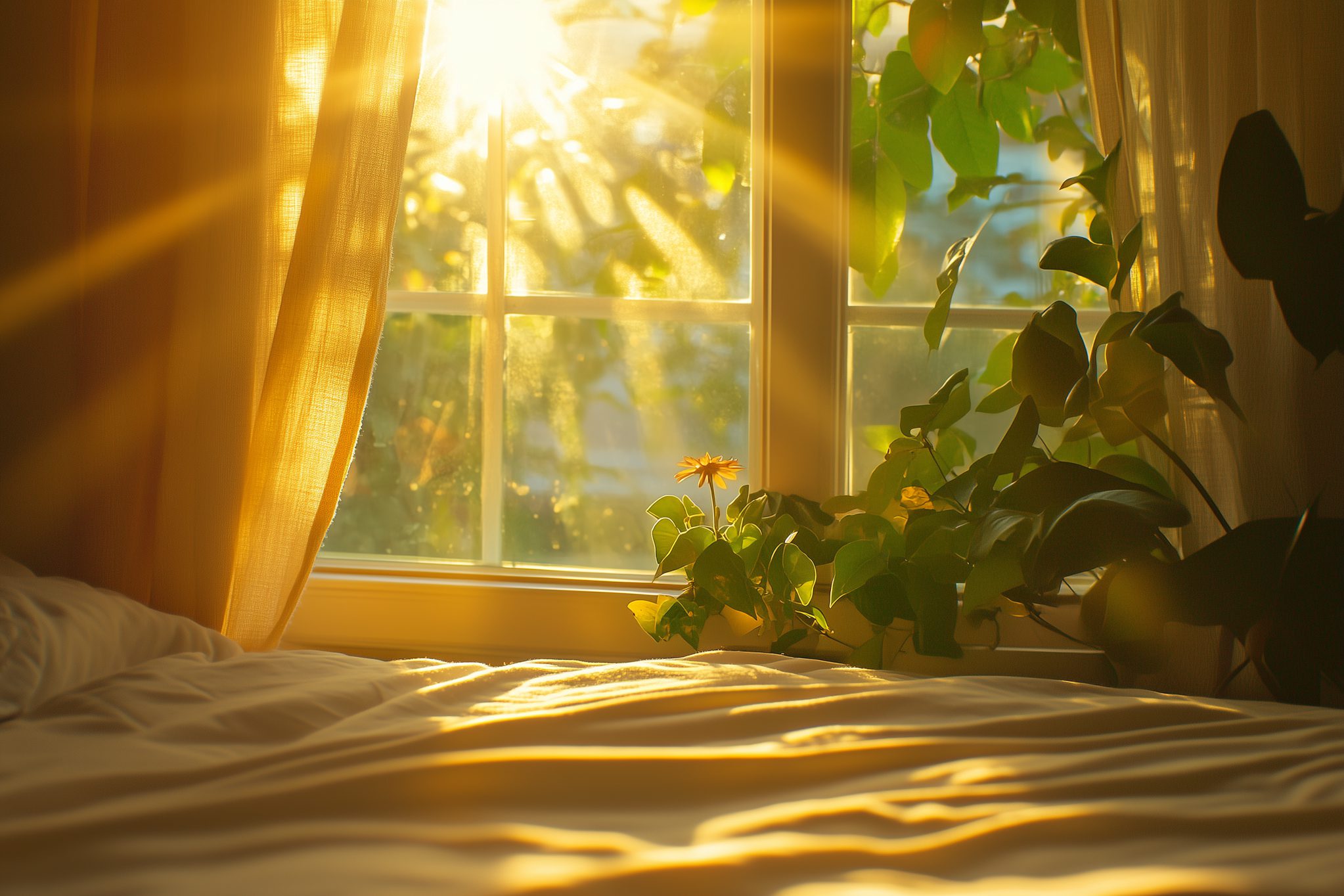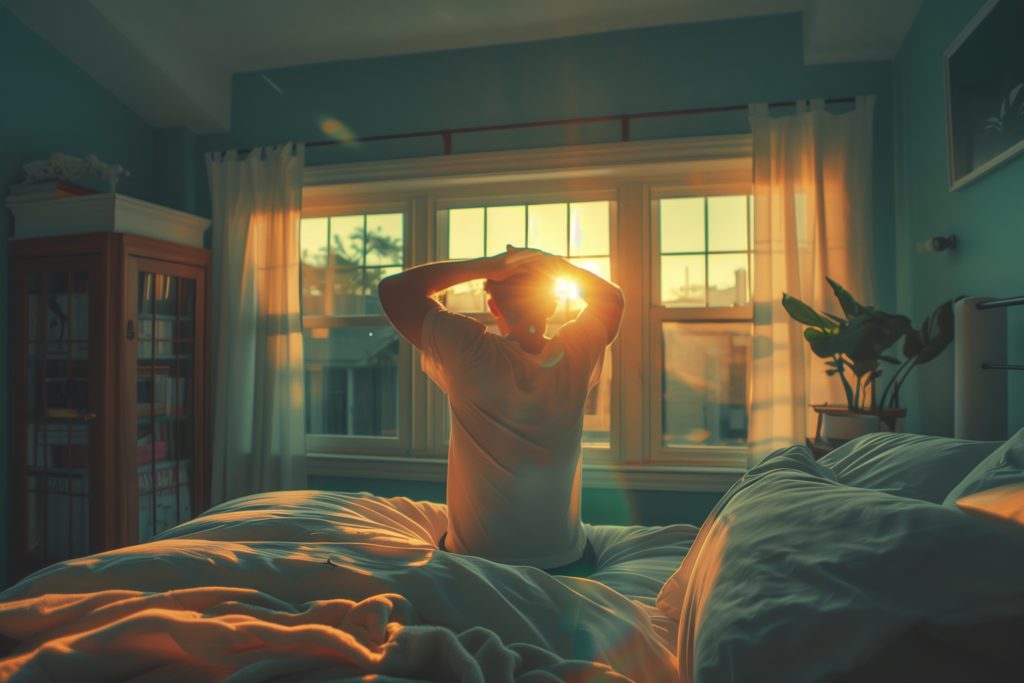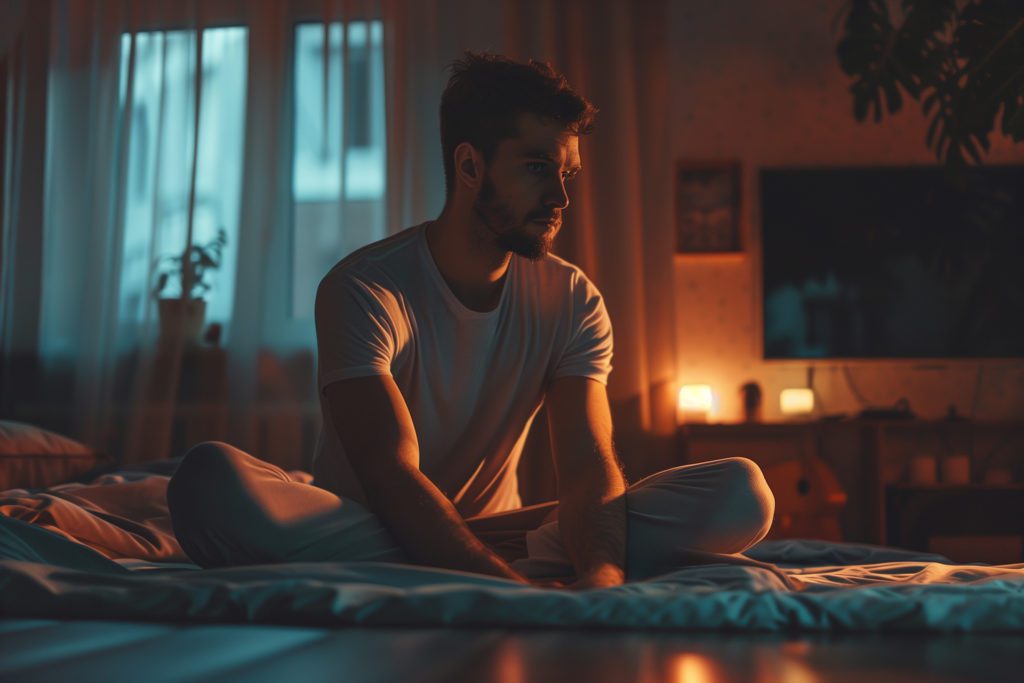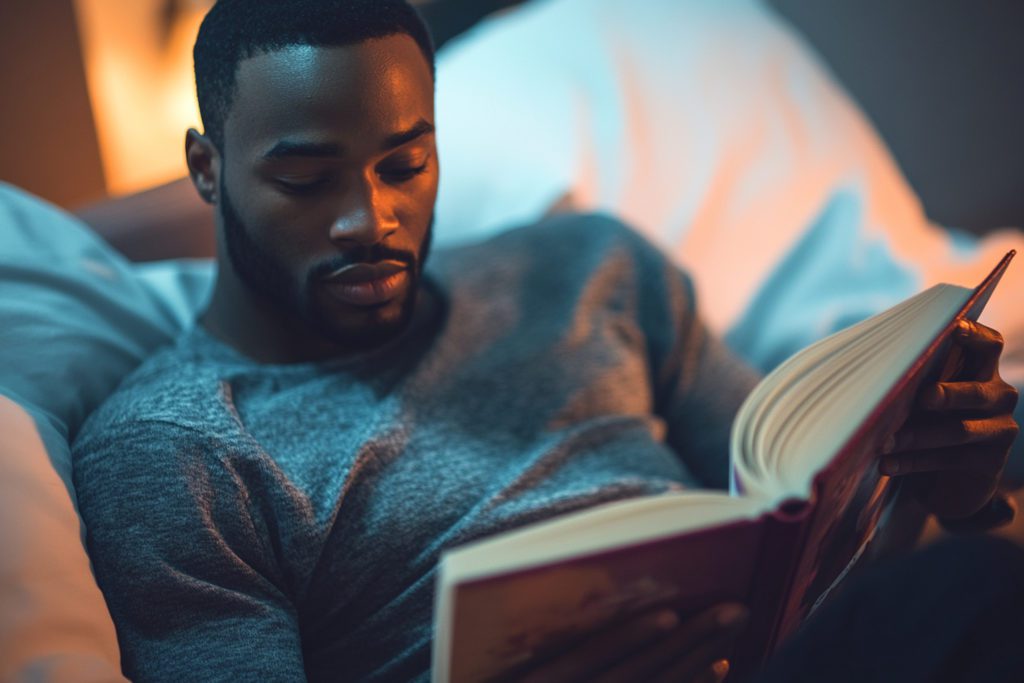
The Importance of Morning Light Exposure for Healthy Sleep-Wake Cycles
Light helps to regulate your sleep-wake cycle. Knowing this, getting light first thing in the morning can set you up for a better night of sleep.

Did you know that you can set yourself up for a better night of sleep from the moment you open your eyes in the morning? It may seem strange that you can influence sleep that you won’t be thinking about for 16 hours, but it’s all because of your circadian rhythm.
Your circadian rhythm dictates your sleep-wake cycles, and it relies on sunlight in order to accomplish this regularity. With morning light being your first exposure to light in the day, it is crucial for setting the tone of today’s sleep-wake cycle, so it’s not something to skip out on.
The Influence Of Light On Your Sleep-Wake Cycle
The circadian rhythm is a 24-hour cycle that your body follows, and its primary role is regulating your sleep-wake cycle. However, your circadian rhythm requires something to reset it each day so that it can continue to remain steady—this is the role that light plays.
The primary pacemaker for your circadian rhythm is the suprachiasmatic nucleus (SCN), which is found in the hypothalamus area of your brain. The SCN receives information from the retina in the form of light or darkness, which is how it trains the circadian rhythm to sleep-wake cycles.
To understand just how influential light is in your sleep-wake cycle, one study that altered the time participants were exposed to light found that they could shift their rhythm by approximately 6 hours just by providing exposure to light for several hours in the evening. This massive shift occurred after just two days.
The findings of this study confirmed a theory: the body is most sensitive to light during the biological night. So, staying up late can do more to alter your circadian rhythm than you may think.
If you’ve had one too many late nights, though, morning light may be able to help you get back on track.
How Morning Light Improves Your Sleep
If you struggle to fall asleep at night, there are many wind-down habits that you can initiate to sleep better, such as taking a warm bath, listening to relaxing music, or practicing mindful meditation. However, the habits that you adopt first thing in the morning may also help you sleep better.
Specifically, getting bright light first thing in the morning can help to kick off your sleep-wake cycle, which needs to be regulated in order to feel tired when the day is done. If your sleep-wake cycle is off all day, it’ll be off at night, too.
Studies from the 1950s found that the timing of a light stimulus affects the magnitude of the response to the stimulus; essentially, the time that you’re exposed to light can affect how much your body responds to it. Morning light helps to advance your inner clock, while light at night delays it. Thus, morning light is crucial for shifting you from sleep to wake with enough time to remain awake before it’s time to once again sleep.
Your circadian rhythm relies on regularity, which is why getting morning light around the same time each day—taking into account variances based on shifting sunrise hours—is crucial for keeping your circadian rhythm steady. The more regular it is, the easier it becomes to sleep at night.
Getting sunlight, in particular, can help improve your sleep, with research showing that daytime exposure to white light increases evening fatigue and sleep quality, makes it easier to fall asleep, and increases slow-wave, deep sleep.
The Power of Morning Light for Those with Sleep Disorders
Those who have circadian rhythm sleep-wake disorders have a disruption in their internal clock, which can make it hard for them to fall asleep and wake up. Many habits can help those with these sleep disorders, including avoiding electronics before bed and getting exercise during the day. These habits help to keep the circadian rhythm regular, as can getting sunlight first thing in the morning.
Thus, for those with a circadian rhythm sleep disorder, morning sunlight can be even more essential, as it is the first thing you can do in your day to help regulate your circadian rhythm.
Supercharge Your Morning To Sleep Better
To sleep better at night, it’s crucial that you make the most of your morning.
Get Outside
While any type of light can help with your circadian rhythm, daylight is significantly more powerful. Daylight has up to 10,000 lux, which is a measure of illuminance, while office lighting often reaches only 500 lux. This shows that getting sunlight will be much more effective than sitting indoors with the lights on.
Use a Dawn Simulator Alarm Clock
While we’re sleeping, darkness is key, which is why many people may opt for blackout curtains to ensure their room retains the darkness they need in order to sleep soundly. However, this darkness can make waking up difficult, as your mind still perceives it as a time to continue sleeping. While immediately getting up and opening the curtains is one way to jumpstart your wake cycle, you can also try an alarm clock that simulates morning sunlight.
These alarm clocks gradually brighten over a set amount of time, helping to ease you out of sleep. Not only can the light act as a gentle cue to wake up, but it also means that when your alarm goes off, your room will be bright, which can make waking up easier.
Genuine sunlight is still more beneficial than any artificial light, though, so combine your sunlight alarm clock with a trip outdoors once you’re out of bed to get the most out of your morning light.
Combine Sunlight With A Workout
When it comes to daytime activities for your circadian rhythm, the two key ones include getting sunlight and exercising—so why not combine them?
One study on morning exercise even found that if you have a hard time falling asleep, exercising in the morning can help you have better quality sleep by lessening the number of times that you wake, specifically in the second part of the night.
Exercising outdoors can improve your sleep in indirect ways, as well. For example, exercising outdoors has been shown to improve mental well-being, which can make falling asleep easier. Additionally, exercising outdoors may help prevent diseases. When diseases cause discomfort and pain, they may keep you up or cause you to wake up during the night, which can decline sleep quality. By preventing disease, exercising outdoors may then preserve your sleep quality.
When you complete your morning workout outdoors, you’re able to stack two sleep-boosting habits: morning sunlight and exercise.
Using Light to Sleep Better
Light plays a crucial role in keeping our circadian rhythm regular, which makes morning sunlight all the more essential for strategic circadian rhythm regulation. By adding some sunlight exposure to your mornings, you can set yourself up for a great night of sleep.

Written by
Jessica G
Medical writer freelancer who has written hundreds of articles on varying topics. Masters of Engineering degree in Biomedical Engineering.
Download Pillow
Get help
Press & News
Legal
Connect
X (Twitter)
Company
Copyright © Neybox Digital Ltd.



